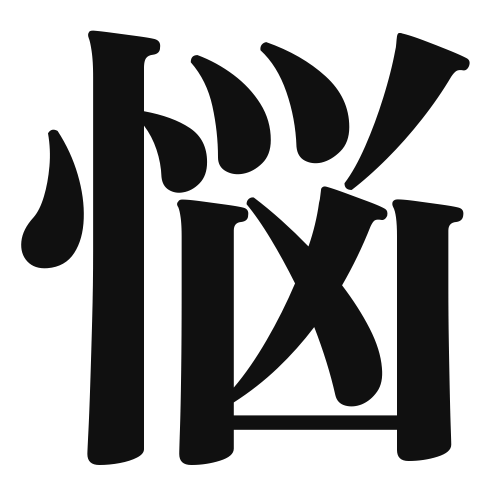1. Overview of Meaning
The kanji “悩” (nau) means “to worry” or “to be troubled.” It conveys a sense of mental distress or anxiety, often related to personal issues or dilemmas.
2. Formation and Radical
The kanji “悩” is a compound character formed by combining two elements: the “heart” radical (心) and the character “牢” (rou), which suggests confinement or being trapped. Together, they symbolize the feeling of being trapped in one’s own thoughts or worries.
The radical of “悩” is 心 (shin), which is commonly associated with emotions and feelings.
3. Examples of Usage
Common words and phrases that include “悩” are:
- 悩み (なやみ, nayami) – worry, concern
- 悩む (なやむ, nayamu) – to be troubled, to worry
Example sentences in daily conversation:
- 最近、仕事のことで悩んでいます。
(I have been worried about work lately.) - 彼女は将来について悩んでいる。
(She is troubled about her future.)
4. Synonyms and Antonyms
Similar kanji with related meanings include:
- 苦 (く, ku) – suffering, pain (more intense than “悩”)
- 心配 (しんぱい, shinpai) – worry (more general and less intense)
Antonyms include:
- 安心 (あんしん, anshin) – peace of mind, relief
5. Cultural and Historical Background
The kanji “悩” is deeply connected to Japanese culture, where mental well-being is often emphasized. It appears in various proverbs and idiomatic expressions, such as:
- 悩みは一時、喜びは永遠 (なやみはいっとき、よろこびはえいえん) – Worries are temporary, but joy is eternal.
This reflects the cultural understanding that while worries may arise, they are often fleeting compared to lasting happiness.
